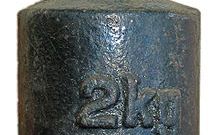Surgery to remove the thyroid gland is called a total thyroidectomy performed. Usually, it is performed in the following indications: - intolerance or ineffectiveness of treatment of hyperthyroidism drugs; - difficulty breathing and swallowing because of the pressure exerted by the enlarged gland on the throat; - bleeding internally from the thyroid gland; malignant tumor – cancer of the thyroid gland; cosmetic considerations. As with any surgery, thyroidectomy carries a number of dangers, particularly the risk of bleeding, infection and open wounds. Also possible complications associated with General anesthesia, and blood clots in the veins of the legs, if you don't get out of bed. However, the removal of the thyroid gland leads to specific consequences. In the first place the body will no longer produce the hormones thyroxine (T4) and triiodothyronine (T3), resulting in dysfunction of various organs and systems including the nervous, cardiovascular, digestive, etc. If hormones do not enter the bloodstream for a long time may develop hypothyroid coma, life-threatening. To prevent serious consequences, while removing the thyroid gland prescribe synthetic hormone thyroxine, which must be taken every day for life. For thyroidectomy distinctive and special complications, the most common of which is the voice changing. This may be due to damage to the external laryngeal nerve, recurrent laryngeal nerve or loss of flexibility in the muscles of the larynx. The voice may become rough, hoarse, low and lose power, but usually after a few months recovering. Sometimes during surgery to remove the thyroid gland may be crossed by the recurrent nerve of the larynx, and then the voice changes becomes irreversible. In surgical practice this happens infrequently, but in such cases the mechanism of implantation in the pharynx Teflon to recover the patient's voice at least partially. Another common complication is damage to or removal of parathyroid glands responsible for the production of parathormone which regulates blood levels of calcium and magnesium. In this case, you can begin cramping and numbness in the hands and around the mouth, but more often it is 1-2 days after surgery. If the damage is irreversible, then the patient will have for the rest of their lives taking supplements of vitamin D, calcium and magnesium. After thyroidectomy decreases the elasticity of the tissues of the neck, and therefore may have difficulty when swallowing, turning the head and stiffness of the neck as a whole. Often patients are marked headaches associated with strong pressure on the back of the head during the operation. If surgery to remove the thyroid gland is successful, the person can return to a normal life. But it is important not to forget about the daily intake of a synthetic hormone, replacement production, to prevent the occurrence of serious consequences.
Dangerous than removal of the thyroid gland
Conservative treatment of thyroid diseases is not always effective. In some cases, required surgical intervention, and the diseased organ is removed partially or completely. This operation involves some risks and complications.

Is the advice useful?

